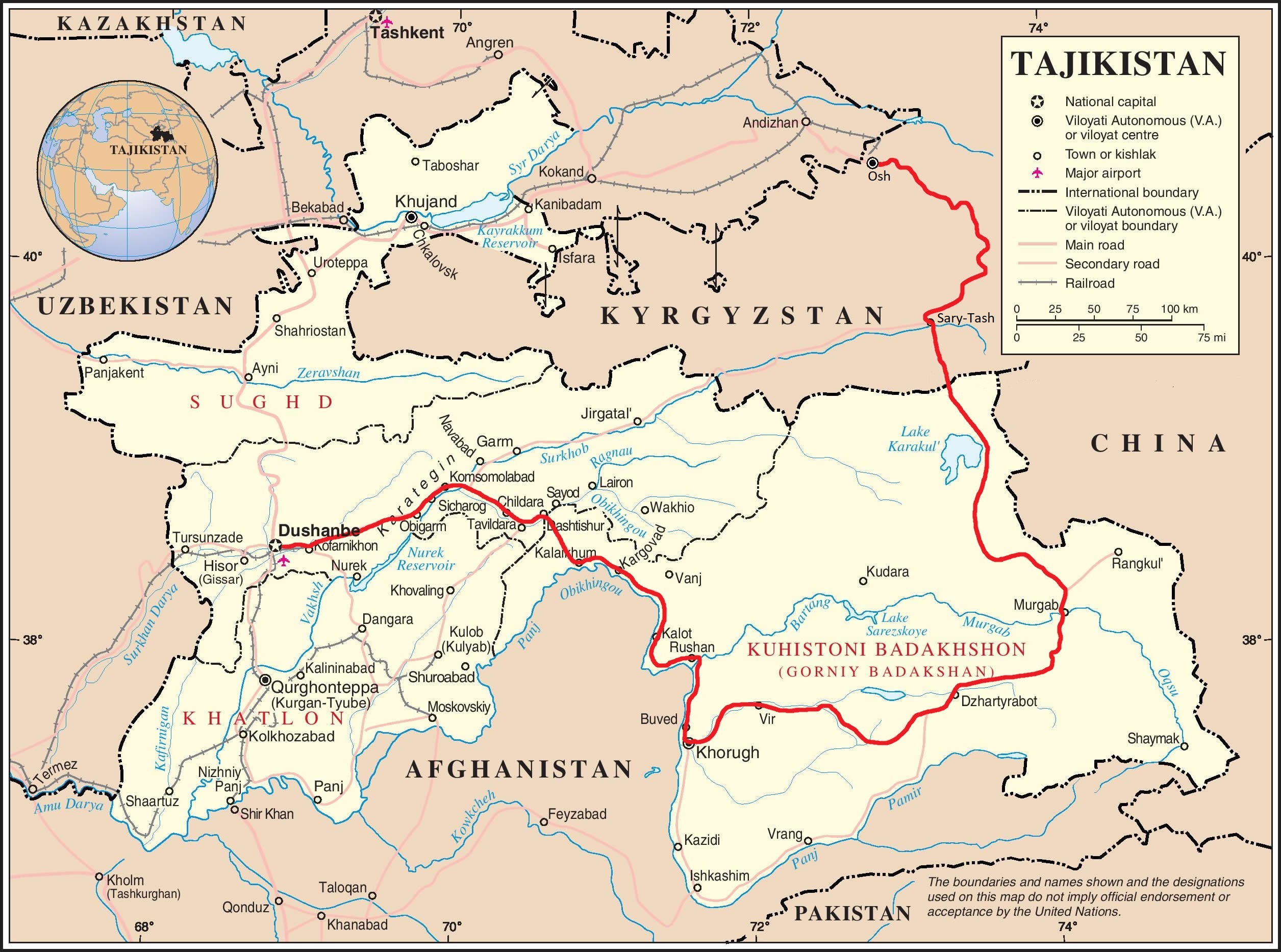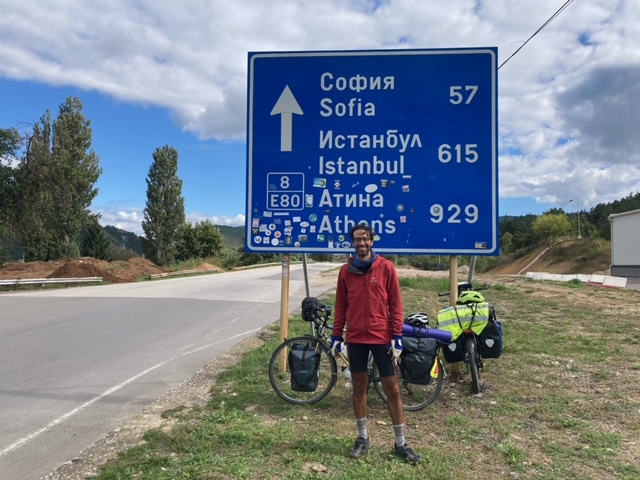The Caravan School is an existential undertaking. We will be a group of 30 people learning about ourselves and community as we negotiate together what is one of the world’s most demanding (and stunning) routes to travel by bicycle, the Pamir Highway in Central Asia. It is an experiment in interdependent living within a context of minimal infrastructural support and a quest to realise in our bodies, minds and hearts that beyond any material asset, our most valuable wealth for growth and fulfilment lies in relationship. We will be presented by immense challenges along the way, stemming from or amplified by the strenuous and unpredictable conditions of the journey and the goal will be to use all of these as opportunities to deepen our connections and act in regenerative ways. This will require deep listening of ourselves and others and the wisdom to balance needs, limits and desires from within the group with factors external and uncontrollable such as weather and terrain, food and water sources. To our aid, we will have each other’s unique gifts as well as an organisational framework that will facilitate their recognition and coordinated expression. This is not a guided tour, with one authority over the rest, but a circle of free people, all learners and teachers, who, sharing an enquiry and a commitment to a process, grow together in its unfolding.

Pamir Highway in Central Asia. Source: The World Map. Click the image to enlarge.
There will be, nonetheless, a master in the classroom, always there and full of wisdom if we know how to look and listen: the land itself. We will be immersed in a remote and awe-inspiring world of high-altitude deserts, valleys and mountain passes that is at the same time, one of the oldest corridors for peoples connecting East and West across the ages. This territory rich in nature and memory will host us as honourable guests and it will hold us and heal us as we face the hardships of the road with its inevitable questions and conflicts, doubts and dilemmas. It will speak to us through signs and synchronicities from the depths of its wild sentience and through stories and traditions passed down countless generations of travellers and pilgrims, merchants and conquerors on the footsteps of whom we will be following. By waking up our senses to all of this knowledge, manifesting and resonating also beyond the limits of our intellect, we will be then able to learn from a much larger and ancient community and tune our own microcosm to its sacred, systemic movements: slow, circular, interconnecting.
To make the most of this vast learning space though, and travel our inner landscapes towards growth and community, we will need to agree beforehand on a few orienting principles. These will help us sustain a safe and cohesive vessel for our individual and collective journeys and navigate it in line with what is the spirit and purpose of the project. The first principle is that we will privilege our own wellbeing and the quality of our relations over clocking kilometres. In other words, our priority will be to care for ourselves and for each other and to use our shared context for our own personal and interpersonal work, even if this comes at the cost of (what may outwardly appear as) advancing less. Our real path, however, is within, and our success, not a measure of how far we will reach on the map, but how far we will go in cultivating our synergies and communion. That is after all why we are coming together - for just cycling, anyone can go on their own.
The second principle is that we will all commit to participate in the school from start to finish. This is important because we will need continuity as a group to be able to mature ourselves and our joint processes and because it will be by remaining together in spite of the tensions and discomforts that are bound to arise that we will be able to draw the most valuable teachings. The situations that cause the most distress will in fact constitute the precious opportunities to see our fears, conditionings and other reactive patterns mirrored back to us and integrating this information, rather than bypassing it by quitting or splitting up, will be at the heart of the value and transformation that this experience can offer.
Thirdly and finally, is the principle that we will not take any psychoactive drugs or use addictive substances and devices throughout these four-week period. The Caravan School is a very serious endeavour that will require us to be at the peak of our powers - one that will ask for our constant attention, engagement and open-heart. It would thus be undermining our efforts if we were to intake anything that impairs or modifies our awareness or otherwise, deliberately adopt practices that diminish our energy levels and compromise our equanimity and presence. This includes the consumption of alcohol and nicotine products, but also the use of smartphones (we will have only one for the whole group that is to be used with restraint to contact friends and family outside). Rather than constraining us in a straitjacket, these three principles will actually expand our range of possibilities to explore our lives as inseparable from each other and the world and pursue the relational knowledge that honours (and tightens) this interweaving.

Photo provided by the author. Click the image to enlarge.
In crafting these words, I attempted to frame the horizon of the Caravan School as a quest for community and lay out the groundwork from where we can depart. Like any experiment worth its name though, there are many uncertainties in how things will play out and a lot of space open for what is yet unknown. The project will emerge in co-creation amongst ourselves and the world as we slowly learn to live and cycle together in a field of intimate dialogue with the environment and its abundance of gifts. The experience will surely prove complex, but equally pregnant with a potential for beauty, magic, and meaning beyond what I can anticipate or describe.
Link for more info: The Caravan School: A Learning Journey.
|
ABOUT THE AUTHOR
José Paixão is a 39 years-old man from Portugal. He trained as an architect, but has always been more interested in questions beyond (and before) the design and delivery of buildings. In 2011, he founded a NGO called Arrebita that attempted to use a money-free system of collaborations to renovate derelict buildings in Porto, and from 2017 led students at the Technical University of Graz to envision the environments and spaces of alternative social narratives and meaning making rituals. His inquiries on how we can lead lives of deeper connection to ourselves, each other and the world have often him to assemble and travel with groups of people and has been further supported by his own engagement in processes of healing and inner growth. The Caravan School follows on this personal quest towards self-awareness and community and it is a journey that he feels privileged to share and co-create with the rest of the participants.
|